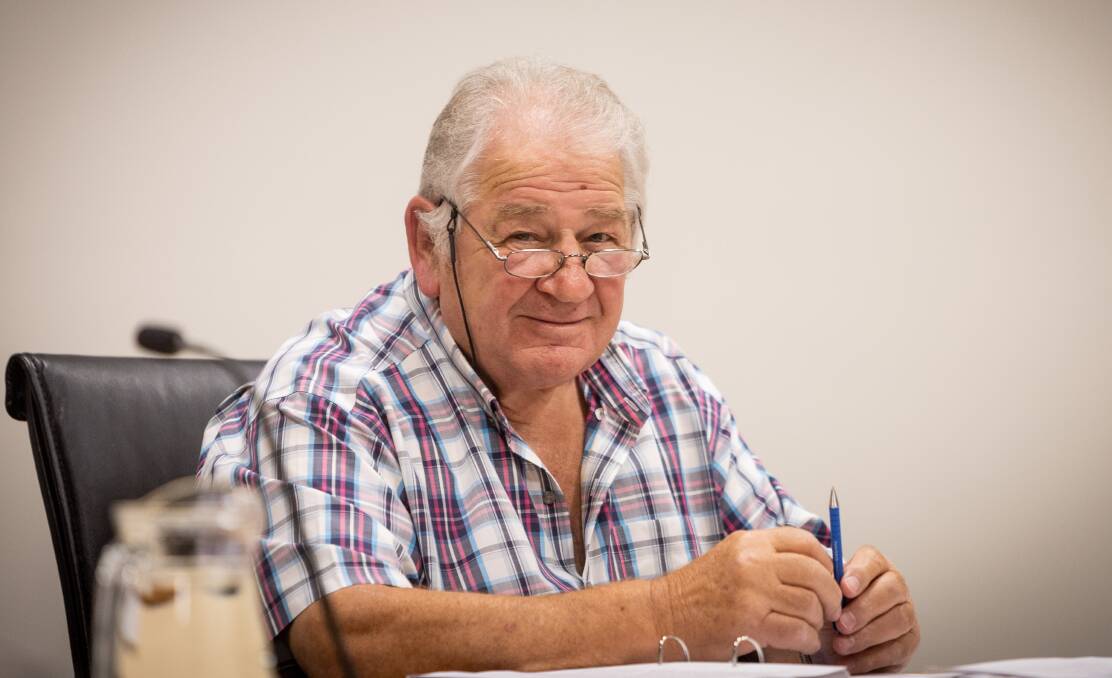
Moyne Shire councillors have voted unanimously to bring in a code of conduct for the council's wind farm community engagement committees, although one councillor remains sceptical about the change.
Subscribe now for unlimited access.
$0/
(min cost $0)
or signup to continue reading
Wind energy has long been a contentious issue in Moyne, which hosts a disproportionate share of Australia's wind turbines because of its windy climate and proximity to high-voltage transmission lines.
The council created engagement committees for wind farm projects in the shire several years ago in an effort to maintain lines of communication between wind farm developers and the local community.
Each community engagement committee is made up of at least one councillor and council officer, several representatives from the local community where the wind farm is situated, and several representatives for the wind farm developer.
The council's energy project manager Michelle Grainger said councillors and council officers on the engagement committees were already covered by codes of conduct and the new code would apply similar guidelines to community and wind farm representatives.
A council spokesman said the new code of conduct was a purely administrative change to try to make the conduct guidelines uniform for all committee members, but Cr Jim Doukas said he wasn't convinced the change was necessary.
"I don't know why it eventuated," he said.
"We had a charter to work by that covered everything and this can't be legally implemented anyway. From what I was told yesterday, they can't make you legally sign it."
Cr Doukas said he didn't believe improper behaviour at committee meetings had triggered the new code, but he had heard of at least one flare up.
"There was a meeting for Ryan Corner (wind farm) and I heard one of the community members told the councillor he was 'a f---ing d---head'," Cr Doukas said.
The council spokesman confirmed it wouldn't be mandatory to sign the new code of conduct.
That hasn't stopped anti-wind farm agitator Viva-lyn Lenehan warning her followers the change is part of a "sinister plot" by the council.
"It seems it is a ploy to gag accountability requirements of Moyne Shire officers and councillors," Ms Lenehan wrote in her regular newsletter.
"It also seems Moyne Shire is creating official dirt on the CEC reps, which could then be handed over to the wind farm company, to be used against them in any future court case."
Ms Lenehan said the change would lead to "Spanish Inquisition-style" tribunals that would remove community representatives who asked difficult questions, but she didn't offer any evidence to back up her claims.
Cr Doukas didn't endorse Ms Lenehan's claims, but said he worried people could take advantage of the complaints process.
"You could shut down the meeting by making a complaint," he said.
"You can't tell whether the complaint is frivolous until it's been investigated."
Cr Doukas tweaked the council motion endorsing the code of conduct, putting a 14-day limit on resolving any alleged breaches of the code.
"Otherwise complaints could drag on for years and no (committee) meetings could be held in that time," he said.
Cr Doukas said the council should be putting its resources into supporting the communities where wind farms were being built.
"The shire doesn't do anything in relation to supporting the community," he said.
"If complaints come in about trucks coming down the wrong roads by the time the shire does something about it, it's too late.
"Where are the penalties, what can they do to stop this kind of thing?"


